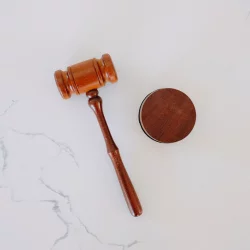Police Used an Arrest Warrant to then Conduct a Search of My Home - Is That Legal?
The police in any country have a lot of power and with this comes great responsibility. In most cases you will not be as familiar with the law as they are. In fact, if you are a law abiding citizen then you will probably be relying on them to look after you.
It is worth noting that the police and law enforcement agencies are different although both entities contain parts of the other.
If you do find yourself in trouble with the police it is important to get professional help as quickly as possible. A California criminal defense attorney is essential if you live in California. You should always choose an attorney based in the state where the alleged crime occurred as they will know the local laws best.
The Arrest Warrant
To answer the question regarding their powers to search your home you first need to understand the scope of an arrest warrant.
An arrest warrant is issued by the court and it will state that the police have been authorized to find a specific person and bring them to the courts. It is usually issued because someone is considered dangerous or they have not turned up to court.
The arrest warrant gives them the right to arrest you, search you and the immediate surroundings.
In this instance an arrest warrant alone would be enough to search your house. This means to protect your home if the police turn up you are better to step outside the house, denying them access or the ability to search.
In almost all other cases they will need a search warrant which describes the property to be searched and what they are looking for. They must be issued by a judge who is convinced that there is enough evidence to suggest these items will be there.
If the police search without a valid warrant anything they find cannot be used in a court of law.
There are several instances when a search warrant is not necessary:
- Consenting To It
If the owner of a property allows the police in to the house and says they can search then this is valid, without a warrant. However, the owner must not be tricked by the police into letting them in.
It is also worth noting that if the house is shared this only entitles the police to search the communal areas. You have the right to decline access to private areas.
- Visible Evidence
If the police are already inside your home and see evidence of a potential crime, such as stolen jewelry on the side or a marijuana plant, then they have the right to remove this evidence and use it against you. This is not the same as a full search of your home.
- Arresting You
As mentioned if they arrest you then they have the right to search the immediate vicinity. If the arrest I made inside your home this means they have a duty to search for weapons and are allowed to look for any evidence.
Never get arrested in your home!
- Emergency
If it is deemed impossible to wait for a search warrant because life is at risk or evidence will be destroyed then the police are allowed to enter the home. A good example of this is when they are chasing a known suspect and they are seen entering your property. They are allowed to follow.
More to Read:
Previous Posts:



